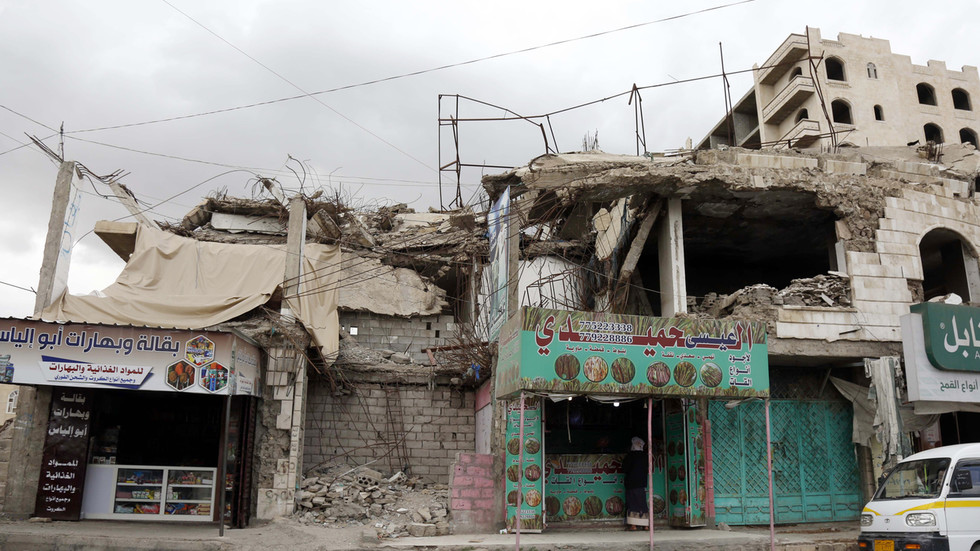The US and British air forces have intensified their military operations against the Houthi militant group in western Yemen, as reported by Al-Masirah TV, which is affiliated with the Houthis. Recently, a series of strikes and a raid targeted the At-Tuhayta district in Al-Hodeidah Governorate. The reports, confirmed by local security sources, come in the context of ongoing hostilities in the region; however, details regarding casualties and the full extent of the damage caused by the attacks remain unclear. This escalation marks the first military action by Anglo-American forces since mid-November when they conducted airstrikes in Yemen’s Saada and Amran governorates. The situation is indicative of a broader geopolitical conflict interlinked with various regional actors.
The Houthi movement, known formally as Ansar Allah, has wielded considerable influence in Yemen, controlling significant territories amidst the ongoing civil war. This group is primarily Shia Islamist and has increasingly engaged in hostile actions against maritime targets in response to the ongoing conflict in Gaza. Since Israel commenced its military operations against Hamas, which has involved deadly strikes within Palestinian territories, the Houthis have presented themselves as defenders of Palestinian rights. They have utilized missile and drone attacks against over 80 merchant vessels in the Red Sea, expanding their campaign from targeting Israeli-affiliated ships to US and UK interests after the January Anglo-American airstrikes.
Initially, the Houthis targeted vessels with direct ties to Israel, expressing their retaliation against what they consider aggressions by the Israeli military. However, as the conflict has progressed, their campaign broadened, with attacks extending to vessels of Western nations, reflecting a shift in their operational strategy. This change aligns with their declared cause of solidarity with the Palestinian struggle. Their rhetoric and actions suggest a tactical realignment as they seek to galvanize support within the region by framing their military actions as part of a larger movement against perceived Western imperialism.
Furthermore, the Houthis have demonstrated their capability to threaten regional stability by launching missiles not only at commercial ships but also at Western naval forces patrolling the waters. Their reported actions include missile launches targeting Israeli soil, showcasing their intent to project power beyond Yemeni territory. This has raised alarms among international observers concerned that Houthi aggression could trigger wider military tensions in an already volatile geopolitical landscape. The Houthis justify these attacks as necessary to show solidarity with the Palestinians, attempting to position themselves as a key player in the regional resistance against Israel.
The conflict in Yemen, exacerbated by foreign intervention, has resulted in a humanitarian crisis, with millions facing starvation and displacement. The military actions by US and British forces against the Houthis suggest a significant international interest in stabilizing the region, possibly aimed at curbing Iranian influence through its support for Houthi militants. Analysts observe that the intertwined nature of the conflicts in Yemen, Gaza, and the broader Middle East complicates attempts at resolution, as regional powers leverage the situation to further their strategic ambitions.
In conclusion, the recent strikes against Houthi targets signify not only a military escalation involving the US and British forces but also underscore the complexities of the Yemen conflict intertwined with wider Middle Eastern geopolitics. As the Houthis continue their campaign against maritime traffic and project their military capabilities towards Israel, the potential for broader conflict remains high. The situation highlights the challenges in seeking a resolution as multiple narratives and interests converge in a region already marked by instability and human suffering. Moving forward, the international community must grapple with the consequences of military action and the urgent need for diplomatic solutions to address the humanitarian crisis and the underlying issues fueling the ongoing conflict.

